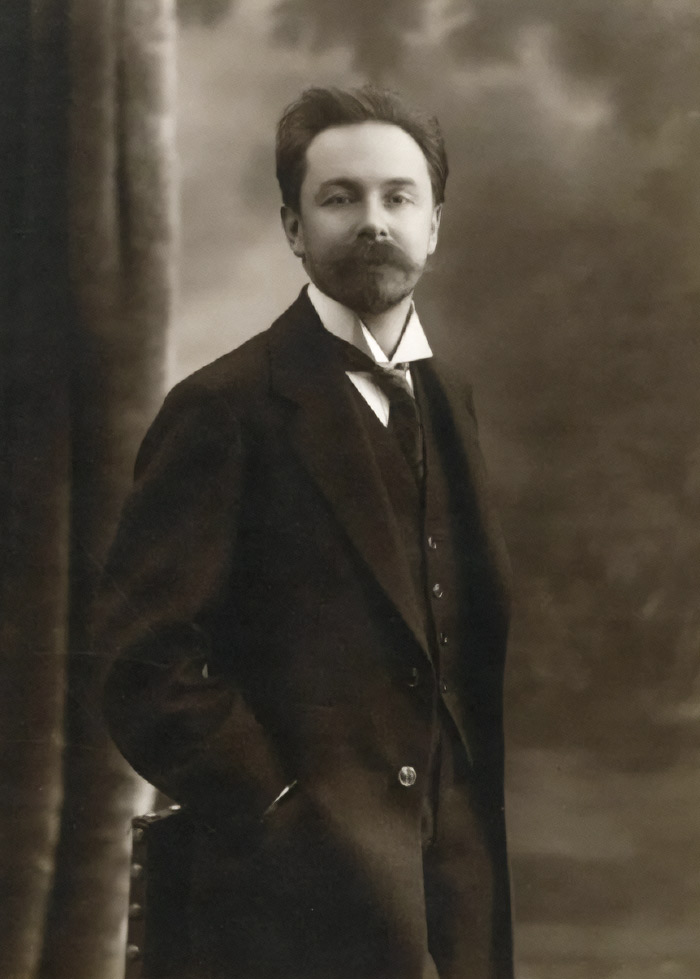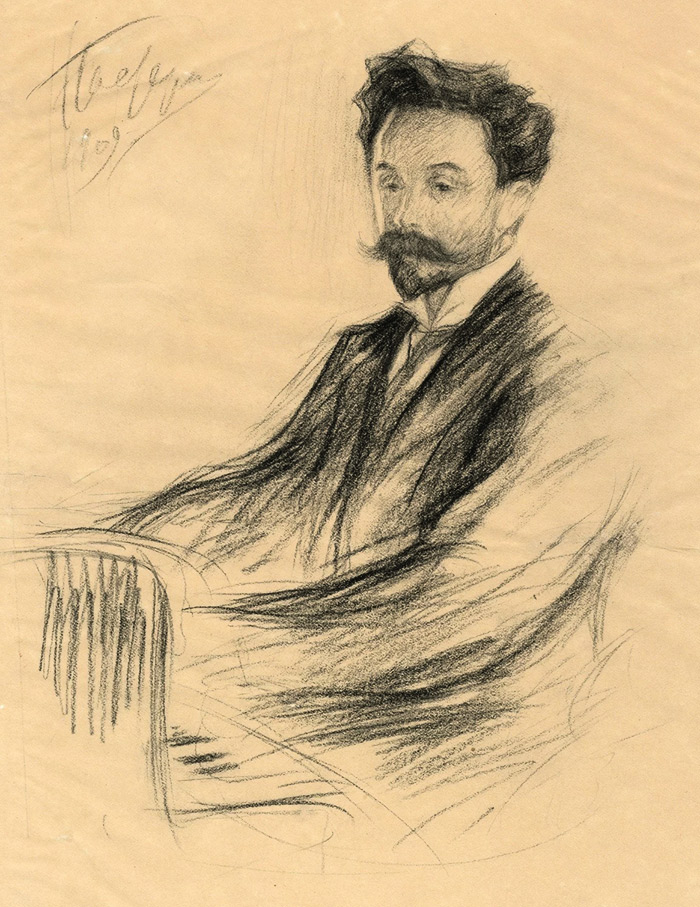Mikalojus Konstantinas Čiurlionis, Sparks (III)
Alexander Skryabin and the Russian Piano School in the Silver Age
Instructors: Michelle Fillion and Bruce Vogt
Alexander Skryabin (1872–1915) is perhaps the least known of the great composers for the piano, at least outside Russia. His career coincided with the pre-Revolutionary “Silver Age” that bridged the nineteenth and twentieth centuries, a time of spectacular creative flowering in Russian music, literature, dance, and the visual arts. The piano in particular had profited from the founding of the famed Conservatories in Moscow and St. Petersburg by the Rubinstein brothers. At the turn of the twentieth century the great pianistic trio of Skryabin, Rachmaninoff, and Prokofiev were trained there in the company of other stellar pianists, including Goldenweizer, Josef Lhévinne, Igumnov, and many others. Together with their distinguished faculty they established the Russian Piano School as a grand tradition in piano performance and teaching that persists until today.
Skryabin possessed perhaps the most original creative voice in Russian piano composition of this time, distinctive from the music of Rachmaninoff and Prokofiev. A brilliant, mercurial, and troubled man, he produced a gem-like body of solo music for the piano. It includes miniatures – Preludes, Poèmes, and Etudes –, many of which are playable by serious amateurs, as well as ten Sonatas, a Piano Concerto, and other major works of advanced difficulty. In it he traversed a course from late Romanticism to early Modernism, with a final leap into mysticism and “music of the spheres.” Pianists at any level will profit from its lessons in color, voicing, dynamics, rhythmic flexibility and rubato, and will be called upon to evoke a varied array of emotional states from refined delicacy to overpowering passion.
Course Experience
This summer course will meet daily for two hours, and will be shared by musicologist Michelle Fillion and pianist Bruce Vogt. Each class will be devoted to a single topic. It will begin with a presentation by Michelle dealing with selected music in its cultural context, and will be followed by two or three class performances of related music with commentary by Bruce. Skryabin will predominate in the course content, although there will be inroads into the piano works of Rachmaninoff and Prokofiev composed before the Russian Revolution beginning in 1917.
Many of the participants may not be familiar with more than a handful of Skryabin’s works. In order to assist you in selecting appropriate music if you wish to perform in class, we are providing a List of Suggested Repertoire. It includes short comments on each work, with mention of special technical issues. Several works of Rachmaninoff and Prokofiev will also be included on the list. Please be in touch with either Bruce ([email protected]) or Michelle ([email protected]) if you need some advice in selecting suitable repertoire.
At the beginning of June we will contact all participants for a proposal of their repertoire for the course. Note: If you are proposing only one work, please be aware that it must be by Skryabin; a second work may be by Skryabin, Rachmaninoff, or Prokofiev. Please note, however, that this is not a master-class, and that not all participants may have an opportunity to perform. Performers will be selected according to the relevance of their piece(s) to the day’s topic.

